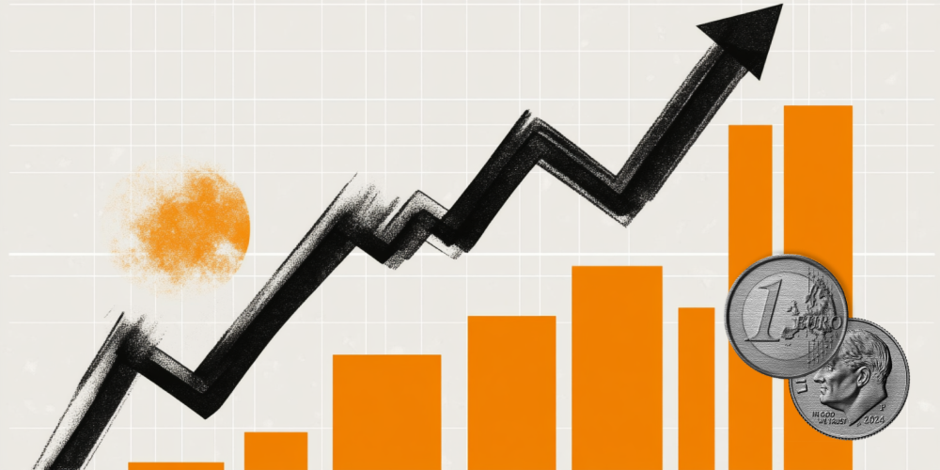EUR/USD gathers strength above 1.1500 as Trump threatens Fed independence
- EUR/USD trades firmer near 1.1520 in Tuesday’s early Asian session.
- US Dollar falls broadly after Trump doubled down on attacks against the Fed’s Powell.
- The EU considers modifying methane rules for US gas to support trade talks.

The EUR/USD pair extends its upside to around 1.1520 during the early Asian session on Tuesday, pressured by a weaker US Dollar (USD). The US Dollar Index (DXY) fell to its lowest since March 2022, near 98.30, as traders kept losing confidence in the US economy.
US President Donald Trump ramped up his criticism of Federal Reserve (Fed) Chair Jerome Powell on Monday via social media, calling him a "major loser" and warning that the US economy may slow if the Fed doesn’t move to immediately cut rates. Concerns over a slowdown in the US, the world’s largest economy, and more worries that Trump may fire Fed’s Powell exert some selling pressure on the Greenback and act as a tailwind for EUR/USD.
"It's really a buffet for any dollar bear... from the heightened uncertainty around the self-harm from tariffs to the loss of faith even prior to the Powell news," said Vishnu Varathan, head of macro research for Asia ex-Japan at Mizuho.
Furthermore, the European Union (EU) is considering tweaking methane rules for US gas to help trade talks, Reuters reported on Monday. The European Commission is working on its offer for trade talks with the US to attempt to avoid Trump's planned tariffs, with both sides signaling that energy could form part of a broader trade deal. The optimism surrounding trade negotiation could provide some support to the shared currency against the USD in the near term.
Euro FAQs
The Euro is the currency for the 19 European Union countries that belong to the Eurozone. It is the second most heavily traded currency in the world behind the US Dollar. In 2022, it accounted for 31% of all foreign exchange transactions, with an average daily turnover of over $2.2 trillion a day. EUR/USD is the most heavily traded currency pair in the world, accounting for an estimated 30% off all transactions, followed by EUR/JPY (4%), EUR/GBP (3%) and EUR/AUD (2%).
The European Central Bank (ECB) in Frankfurt, Germany, is the reserve bank for the Eurozone. The ECB sets interest rates and manages monetary policy. The ECB’s primary mandate is to maintain price stability, which means either controlling inflation or stimulating growth. Its primary tool is the raising or lowering of interest rates. Relatively high interest rates – or the expectation of higher rates – will usually benefit the Euro and vice versa. The ECB Governing Council makes monetary policy decisions at meetings held eight times a year. Decisions are made by heads of the Eurozone national banks and six permanent members, including the President of the ECB, Christine Lagarde.
Eurozone inflation data, measured by the Harmonized Index of Consumer Prices (HICP), is an important econometric for the Euro. If inflation rises more than expected, especially if above the ECB’s 2% target, it obliges the ECB to raise interest rates to bring it back under control. Relatively high interest rates compared to its counterparts will usually benefit the Euro, as it makes the region more attractive as a place for global investors to park their money.
Data releases gauge the health of the economy and can impact on the Euro. Indicators such as GDP, Manufacturing and Services PMIs, employment, and consumer sentiment surveys can all influence the direction of the single currency. A strong economy is good for the Euro. Not only does it attract more foreign investment but it may encourage the ECB to put up interest rates, which will directly strengthen the Euro. Otherwise, if economic data is weak, the Euro is likely to fall. Economic data for the four largest economies in the euro area (Germany, France, Italy and Spain) are especially significant, as they account for 75% of the Eurozone’s economy.
Another significant data release for the Euro is the Trade Balance. This indicator measures the difference between what a country earns from its exports and what it spends on imports over a given period. If a country produces highly sought after exports then its currency will gain in value purely from the extra demand created from foreign buyers seeking to purchase these goods. Therefore, a positive net Trade Balance strengthens a currency and vice versa for a negative balance.
Author

Lallalit Srijandorn
FXStreet
Lallalit Srijandorn is a Parisian at heart. She has lived in France since 2019 and now becomes a digital entrepreneur based in Paris and Bangkok.

















